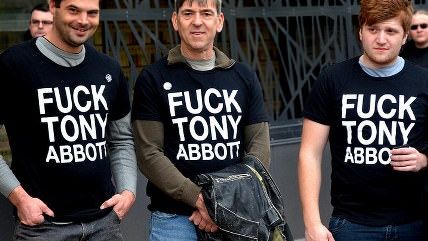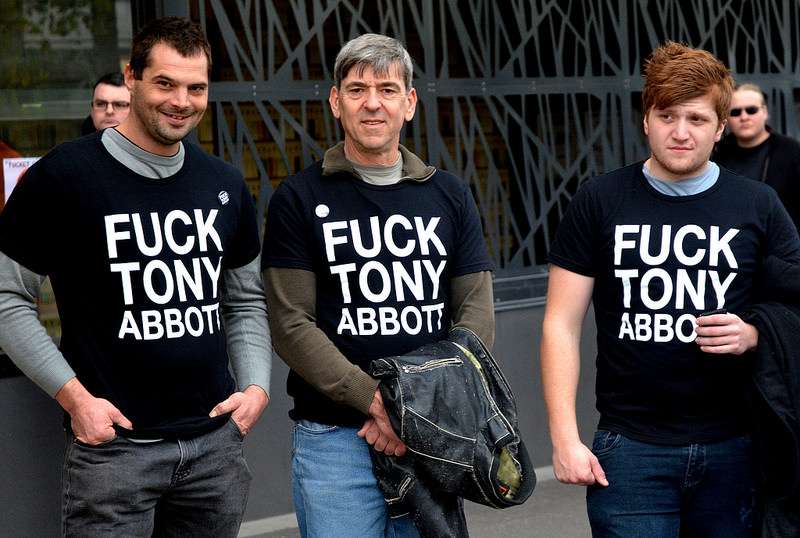Australia Drops Opportunity to Scale Back Hate Speech Laws


Australia this week provides another reminder that America's First Amendment is in a league of its own, even among Western first world countries. In July, Jerry Tuccille took note of an order by the courts in Australia imposing a five-year ban prohibiting media outlets from reporting on a corruption case involving them and three other countries (Malaysia, Vietnam and Indonesia). Wikileaks published the order.
This censorship is not the only area where Australia limits free speech. The government had been considering changes to a part of the country's Racial Discrimination Act that criminalizes hate speech. But on Tuesday, Australian Prime Minister Tony Abbott announced he was abandoning the changes in order to preserve "national unity."
The hate speech component of the law falls under 18C, making it a crime to publicly say things that "offend, insult, humiliate or intimidate another person or a group of people" on the basis of their race, color, nationality, or ethnic origin.
According to The Australian, leaders had proposed changing the law to remove "offend," "insult," and "humiliate" from the list, add a measure about "vilification" instead, and broaden exemptions to the law. The reason the change has been abandoned, Abbott said, is because it's a distraction from counterterrorism efforts. By which, I think he means he's afraid that not punishing bigoted speech will cause minorities to turn into terrorists in response, which is a pretty horrible way of looking at your citizenry. Via The Australian:
Mr Abbott, explaining his decision to dump the election commitment to amend the act, said: "When it comes to counter-terrorism, everyone needs to be part of Team Australia. The government's perfectly-reasonable-under-different-circumstances attempt to amend section 18C has become a complication that we just don't need and we're not going to proceed with."
The government's libertarian approach to racial discrimination laws angered ethnic minorities including Jewish, Arabic, Islamic, Greek, Chinese and Armenian community representatives.
Bill Shorten accused the government of using national security as "a cover" to abandon his "reckless" reforms to racial discrimination laws.
"Giving Australians the right to be bigots was always destructive action; there is no right to be a bigot in this country," the Opposition Leader said.
Censoring what people say doesn't cause people to be more or less bigoted, obviously, but it's a good reminder of the many, many people who think rights are actually privileges that are handed out by the government and not things that restrict the power of government over the individual.
Note the reference to potential changes in the law being described as "libertarian." Libertarian Australian Senator David Leyonhjelm wrote an opinion piece in The Australian (paywalled) criticizing the failure to follow through with the changes:
Laws limiting racist speech are not really about speech at all, but are intended to prevent unacceptable thoughts. To believe our thoughts can be regulated by restricting our speech is delusional. No law will stop people from thinking things we disagree with, and banning their expression will only deny civilised public debate and encourage the use of non-traditional media.
The best way to combat opinions you don't like is to have them debated, not stowed in some shady corner of the internet or taken into the courtroom.
I am very disappointed that the government has dropped its plan to repeal section 18C of the Racial Discrimination Act under the guise of national unity. If we want to live in a free society, we should take the advice of Chopper Read and harden up. There are many pressing issues for our governments and courts, but the question of who has had their feelings hurt is not one of them.
Leyonhjelm also had comments about Australia's own efforts to collect metadata about citizens' online activities and censorship of journalists in the guise of protecting national security. How familiar! Watch this blog for an interview with Leyonhjelm, likely sometime next week.


Show Comments (57)